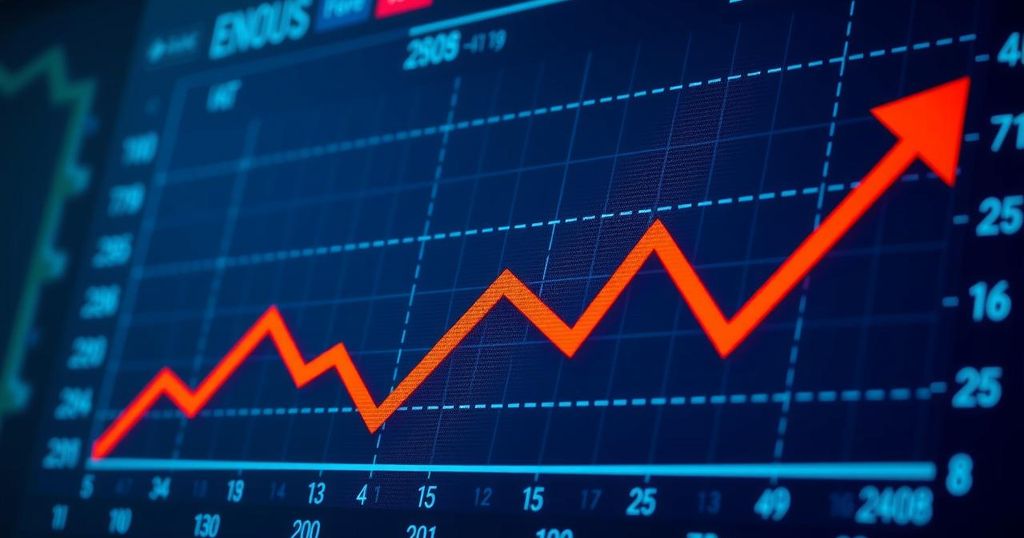The Economy Shows Encouraging Growth Ahead of Election Day

Recent reports indicate a 2.8% annual G.D.P. growth in the U.S. economy for the third quarter, signaling recovery post-pandemic. Despite this, most voters rate the economy as only fair or poor, a sentiment that may heavily influence the upcoming presidential election. Polls show that economic issues are top-of-mind for voters, with Donald Trump currently regarded as more trustworthy on economic matters than Kamala Harris, who has narrowed the confidence gap recently. Trump, however, tends to shift focus away from economy-centric discussions towards immigration, complicating his campaign strategy.
As the electoral process rapidly approaches, recent government reports highlight a robust American economy characterized by increased consumer spending and decreased inflation. The Gross Domestic Product (G.D.P.) showed an annual growth rate of 2.8 percent during the third quarter, suggesting a positive economic recovery following the hardships posed by the pandemic. However, despite these improvements, a significant portion of voters continue to perceive the economy as merely fair or poor, indicating lingering discontent, which could critically influence the outcome of the upcoming presidential election. In the latest polling data from The New York Times, voters identified the economy as the foremost issue in the election, a sentiment consistent across all polls this year. Moreover, Donald Trump currently enjoys greater voter confidence regarding economic management compared to Kamala Harris, although Harris has notably reduced the gap from a 13-point deficit to just six points in the past month. Michael Gold, a journalist covering Trump’s campaign, remarked, “When Trump taps into voters’ concerns over the economy, it can be very effective. A lot of voters see the economy as a referendum on the current administration, and when Trump focuses on that, he can be very strong.” However, Trump has shown a tendency to shift the narrative away from economic themes, frequently redirecting his focus towards immigration issues, which he attributes to his victories in previous campaigns. In related political developments, the Supreme Court permitted the state of Virginia to eliminate approximately 1,600 potentially ineligible voters from its registration lists. Vice President Harris sought to distance herself from President Biden’s controversial comments concerning Trump supporters. The state of Arizona remains a closely contested battleground, with Republicans emphasizing immigration while Democrats prioritize abortion rights. In a notable endorsement, former California Governor Arnold Schwarzenegger expressed his support for Harris. As Election Day approaches, the economic climate remains a pivotal factor for voters, setting the stage for intense political maneuvering in the final stretch of the campaign season.
The article examines the current state of the American economy as Election Day approaches, focusing on recent government reports that indicate economic growth and recovery post-pandemic. It highlights the critical role that economic perceptions play among voters in the upcoming presidential election, particularly in the context of candidates Donald Trump and Kamala Harris. The backdrop includes voters’ historical concerns about the economy, as well as the strategic decisions candidates make regarding campaign messaging.
In summary, while the American economy appears to show signs of strength ahead of the elections, public sentiment remains divided, with many voters expressing dissatisfaction. The economic issue is paramount for voters, and candidates’ ability to address these concerns effectively will be crucial in influencing voter decisions. The interplay between economic recovery and political messaging will likely be a determining factor in the upcoming election.
Original Source: www.nytimes.com






